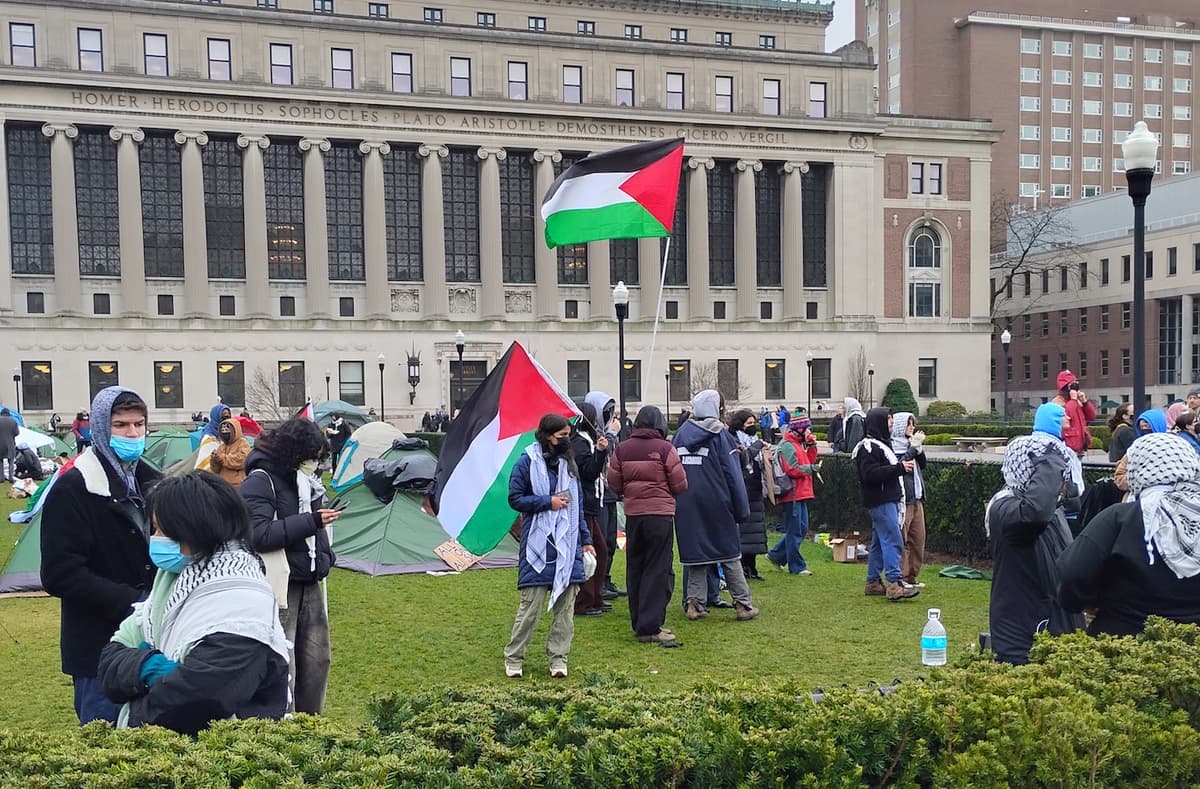Columbia Collapses
Instead of the glory of a full campus-wide commencement, students will retreat to ceremonies for the individual schools within the university.

Columbia University’s cancellation of its traditional commencement represents a collapse of leadership and a victory for the nihilists who make common cause with Hamas. It’s a retreat in what is likely to be a long struggle at Columbia and other universities across the country. It’s even worse than what happened in 1968 when agitators favoring the Soviet Union over America in Vietnam forced the university to retreat to a nearby church.
What was announced today is that instead of the glory of a full campus-wide commencement, students will mark their graduations in ceremonies for the individual schools within Columbia. It’s a disappointing development. We might have expected better from President Nemat “Minouche” Shafik, who has shown some spine at various intervals in recent months in the face of escalating anti-Israel protests that have roiled the campus.
Given the lesson that the protesters — many not even students — will not be appeased by reason, the university’s retreat on its commencement is all the more mystifying. Especially insofar as details emerge raising questions about the ties of the protest groups — including Students for Justice in Palestine — with terrorism. These alleged ties are spelled out in a federal lawsuit that suggests that protesters are, in effect, taking marching orders from Hamas.
“When someone tells you they are aiding and abetting terrorists,” the lawsuit argues, “believe them.” The suit traces links to terrorism among AJP Educational Foundation, which operates as American Muslims for Palestine, and its affiliate, National Students for Justice in Palestine, an umbrella group for protesters. These groups, the suit contends, re-emerged from the ashes of charities, like the Holy Land Foundation, that shut down after being convicted of crimes.
Doesn’t waving the white flag on commencement — spoiling a moment of celebration for students and their parents — vindicate the claims by the protesters that “we run this campus”? That is the rhetoric of keffiyeh-clad speakers at campus rallies in recent weeks. The protesters, too, echoed 1968 by decrying “interlinked injustices” like “Columbia’s gentrification of Harlem.” They hailed those who in 1968 had “mobilized against the Vietnam War.”
Yet even after the 1968 uprising, which ended in violence when President Grayson Kirk realized he had erred by failing to dislodge the protesters immediately, Columbia had the mettle to carry on with a traditional commencement. Instead of the steps of McKim, Mead, & White’s Low Library, the ceremony was relocated to the Cathedral of St. John the Divine. The historian Richard Hofstadter filled in for Kirk to deliver the commencement address.
The protests, Hofstadter stressed, were a reminder of “the special character of the free university” — its commitment to the “values of freedom, rationality, inquiry, discussion, and to its own internal order” — and a warning that to “subvert such a fragile structure is all too easy, as we now know.” He noted that some sought to turn higher education “into a center of political action.” That, he contended, would amount to a betrayal of the university’s “essential character as a center of free inquiry and criticism.”
Hofstadter stressed the unprecedented nature of the 1968 protesters’ tactics. The “forcible occupation and closure of a university’s buildings with the intention of bringing its activities to a halt,” he explained, “is no ordinary bargaining device — it is a thrust at the vitals of university life.” He denounced it as “a powerful device for control by a determined minority,” warning that “its continued use would be fatal to any university” in the future.
Hofstadter’s remarks have the ring of prophecy. His was a clarion call for academic freedom and for scientific inquiry itself — both of which have been undermined by the leftists of the generation of 1968 who have come to dominate academia. In a question that resonates all the more loudly today amid Columbia’s surrender, he wondered: “What kind of a people would we be if we allowed this center of our culture and our hope to languish and fail?”

